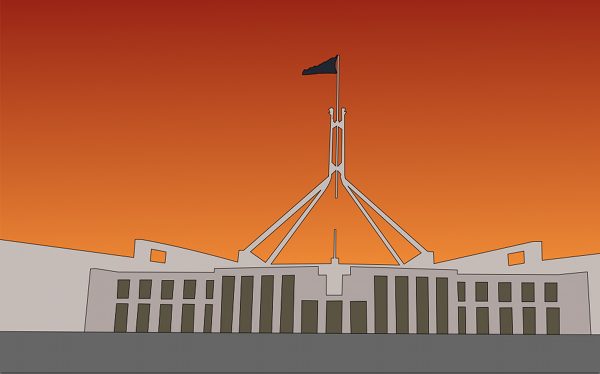Joe Hockey and the GrainCorp Prohibition
Federal Treasurer Joe Hockey has been universally flagellated for prohibiting the acquisition of GrainCorp by US-based Archer Daniels Midland (ADM) Company.
The criticism is grossly unfair. It is also politically and commercially myopic.
Australia is a huge country with substantial resources and a small population. Sometimes we need to protect strategically placed companies and industries. We shouldn’t resile from that even if it offends the sensibilities of a bunch of doctrinaire economists or point-scoring politicians or the vested interests at the top end of town.
It’s not as though this problem is unique to Australia. If, for example, some of our largest banks were to put a consortium together to bid for the Bank of China does anybody seriously think the Chinese Government would entertain that sort of deal?
There have been precedents for the GrainCorp prohibition. In 2001, then Federal Treasurer Peter Costello stopped Shell from taking control of Woodside.
The boot was on the other foot in 2010 when the Canadian Government stopped BHP Billiton from taking control of the Potash Corporation of Saskatchewan, the world’s largest fertiliser manufacturer.
Claims that the GrainCorp prohibition sends adverse messages to potential overseas investments ring hollow when one looks back at the Shell-Woodside prohibition. Since then, there has been a tsunami of foreign capital into Australia. A prominent participant in that wave of foreign investment has been Shell itself.
The truth is, foreign investors owe us nothing. Our interests are not necessarily aligned. They work to different agendas and very different timeframes.
As an example of the timeframe issue, it is not uncommon for foreign oil companies to find a commercially viable natural gas field in Australian waters and then decide not to bother developing it for many years because it suits their global scheduling program.
This is clearly contrary to Australia’s interests: we would want the gas field developed and commercialised as quickly as possible. Our only defence against this conflict is to put a time limit on the tenure of the leases; so use it or lose it.
As for different agendas, quite some years ago, the Australian subsidiary of a substantial British-based chemicals group split from its UK parent. One of the key reasons was said to be conflicting agendas. The Australian subsidiary apparently wanted to expand into Asia but it was over-ruled by the British parent which had decided to tackle Asia in a different way.
Dealing specifically with GrainCorp, there is a widely held view that GrainCorp needs access to substantial funds to carry out expansion and development programs. This is an entirely separate issue from the acquisition itself. There are many alternative ways for GrainCorp to gain access to broader funding. That can be fixed within Australia with no help from ADM.
In addition, ADM has a range of other options available to it for involving itself in the Australian grain industry. For example, it could joint venture with GrainCorp (and other companies) on a range of business opportunities.
There is no doubt that, to reach its full potential, the Australian agribusiness sector needs massive investment and a lot of that funding will have to come from overseas. But allowing foreign interests to take over strategically placed Australian companies and assets may not be the only nor the best way to address the problem.
Waving the ADM acquisition through would have given the US group access to perhaps the most vertically integrated agribusiness in Australia. It would have controlled most of Australia’s grain storage and handling facilities and all but two of the bulk port terminals in the eastern states.
It would also have obtained substantial interests in Australian flourmilling, oilseed processing and refining, and malt production.
And what of ADM itself? If a foreign company wants to take over a strategically positioned Australian company, then its own credentials and track record should be closely scrutinised.
In fact, ADM has had what one observer described as a “troubled history of price-fixing”. If there is substance to this claim, that could have represented a major risk for the Australian grain industry – not today, but several years down the track after any acquisition.
Companies that are in a position to dominate markets eventually succumb to the temptation to raise process and extract monopoly rents.
And when that happens, what do we do?
Joe Hockey may well have been right. Foreign investors might not like knockbacks like Woodside and GrainCorp, but as long as they know the rules they will keep investing in Australia.
GO



